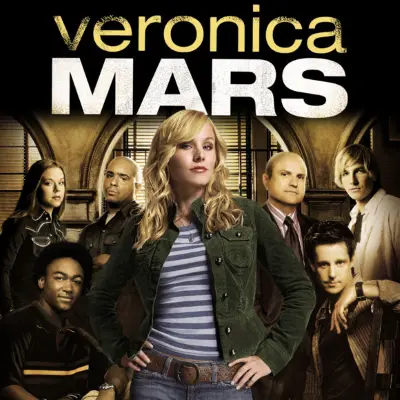Veronica Mars "slyly" anticipated the #MeToo movement
-

The first three seasons of Veronica Mars, airing from 2004 to 2007, doesn't feel like a relic of another era, like The O.C. Veronica Mars also didn't treat sexual assault like a "special" episode -- sexual violence is key to Veronica's arc, says Heather Schwedel. "In 2004, Veronica Mars crashed into a world that wasn’t at all primed to talk about sexual assault but built a primetime network show around that subject anyway," says Schwedel. "How did a character like Veronica end up on the air? As a high schooler who was also a rape survivor, a feminist (though a tacit one), and an amateur private investigator with a deep distrust of the police, she was a radical addition to the pantheon of more airbrushed fictional teens of the time. As someone who watched the series as a teenager but was, at the time, way more interested in Veronica’s relationship with Logan than the show’s gender politics, I’ve found myself, during my recent rewatch, marveling at the sly feminism creator Rob Thomas managed to smuggle into a teen show under my nose. It’s really true, as the New York Times recently put it, that the show 'anticipated much of the #MeToo conversation.' But to call Veronica Mars simply pre-#MeToo would obscure a host of progressive and gender-related milestones it also preceded: the Obama era; either of Hillary Clinton’s presidential runs; the emergence of the feminist blogosphere; the rise of mainstream feminism after the backlash of the ’80s, ’90s, and ’00s; and the accompanying rise of feminist television in conjunction with Peak TV. It was also several years before campus rape and sexual assault finally became a pressing issue of national concern and conversation. So yes, the show now seems, as CNN has called it, 'eerily prescient to today’s headlines.' And I do mean eerily: In the pilot, when Veronica says, 'You want to know how I lost my virginity? So do I,' she could have just as easily said, 'Me too.'"
ALSO:
- Season 4 failed Veronica as a character: "Revisiting characters at different stages in their lives is always a treat," says Mae Abdulbaki, "but no one wants to watch a show where the protagonist is the same person later in life as she was in Season 1. Season 4 of Veronica Mars ultimately stymied Veronica’s growth, choosing to recycle trauma rather than work to organically develop her into a fully realized character at a new stage in her life."
- Veronica Mars anticipated the YIMBY (Yes In My BackYard) vs. NIMBY (Not In My BackYard) divisions
TOPICS: Veronica Mars, Hulu, Rob Thomas (Writer), Sexual Misconduct
More Veronica Mars on Primetimer:
